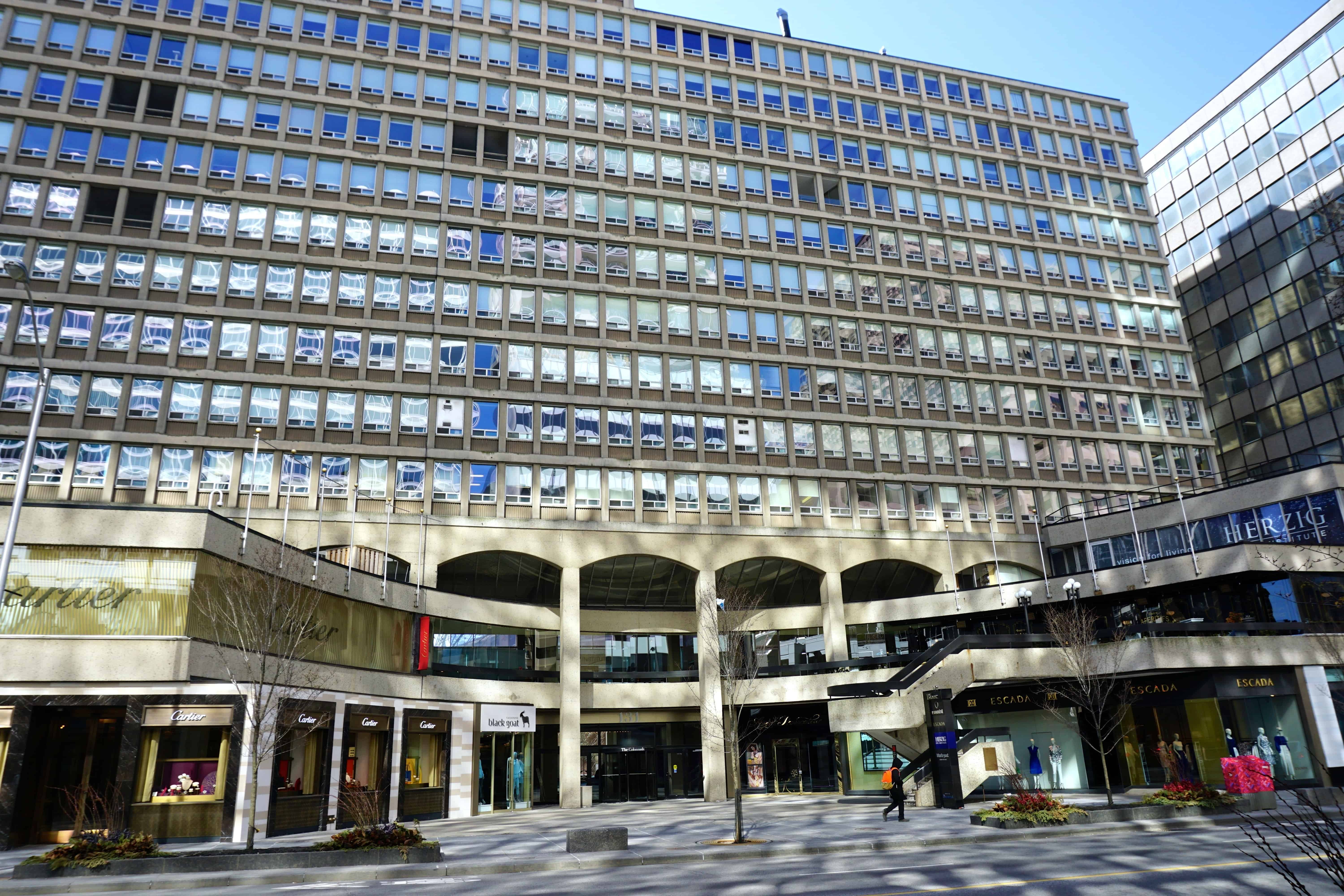Victoria University’s application for leave, appealing the judgement of the Court of Appeal for Ontario to the Supreme Court of Canada, was recently dismissed. This is the latest development in a 27-year dispute between the college and its tenants over rent reset negotiations.
Revenue Properties Company Limited and GE Canada Real Estate Equity Holding Company each hold 100-year leases from Victoria University for the land on 131 and 151 Bloor Street West respectively.
The parties were unable to agree as to whether the fair market value of the land should include the potential for freehold condominium projects, which would give the land a higher valuation.
An arbitration panel was convened and the majority ruled in favour of the higher land valuation, setting the values of 131 and 151 Bloor Street West respectively at $182,700,000 and $37,325,000.
The panel cited Musqueam Indian Band v. Glass which, amongst other important decisions, established that land should be valued as freehold, or as if there were no lease on it, and according to its “highest and best use” as per legal restrictions on land use.
The tenants appealed the panel’s decision to the Ontario Superior Court, asking for a re-hearing with a new arbitration panel. While the Superior Court judge determined that the panel was mistaken for including the potential for freehold condominium development into the value of the land, the judge did not believe this warranted a new panel and remitted the issue back to the same arbitration panel. Last summer, the Court of Appeal for Ontario had dismissed appeals by both Victoria University and its tenants on the Superior Court decision and, again, remitted the issue back to the arbitration panel. It was this dismissal that the college tried to appeal with the Supreme Court.
William Robins, President of Victoria University, says that the college was “disappointed” with the dismissal. “It is part of the fiduciary responsibility of Victoria University and its Board of Regents to ensure that Revenue Properties and G.E. pay the fair and appropriate land rent due under the terms of their leases, and the application to the Supreme Court was part of the fulfilment of that fiduciary responsibility,” Robins said, adding that the college “will continue [to] be strong advocates for Vic and its students at the negotiating table.”
Victoria University is also participating in ongoing discussions with the City of Toronto on property taxes on the unoccupied land it owns. Currently, the college is exempt from paying such taxes in accordance with the Victoria University Act.
The land on 131 and 151 Bloor Street West are two of the most highly valued properties that the university leases out and would have incurred $5,027,736 and $1,052,611 in property taxes respectively from 2013 to 2015 if the taxes had not been exempt.
According to Robins, the rent reset negotiations and property tax discussions are “separate issues.” He also says the arbitration panel is not currently meeting but the college expects it to “convene in the near future.”
GE Canada Real Estate Equity did not answer repeated phone calls and messages to its Montréal office. Calls to Morguard Corporation, which now owns Revenue Properties, were also unanswered.


